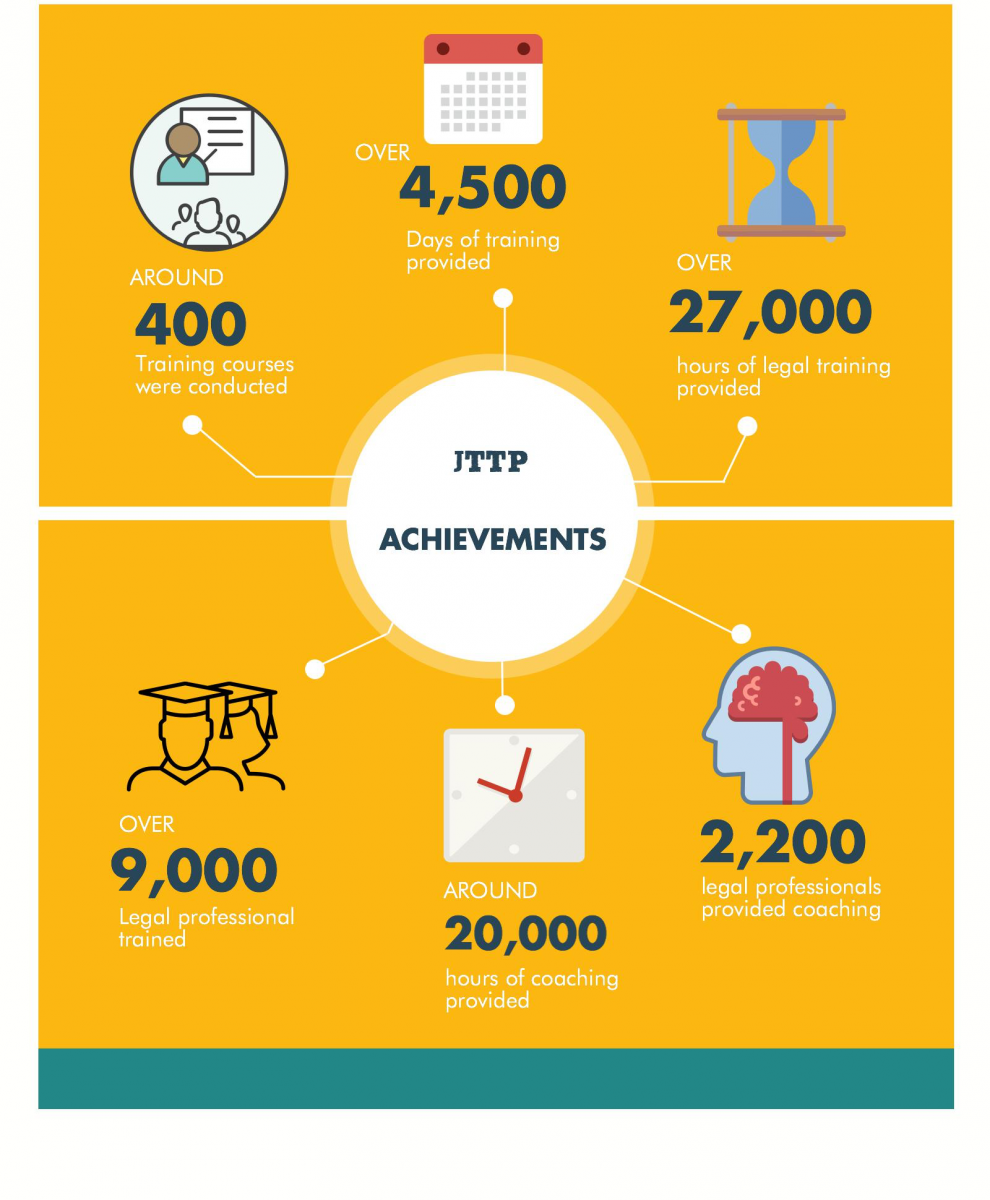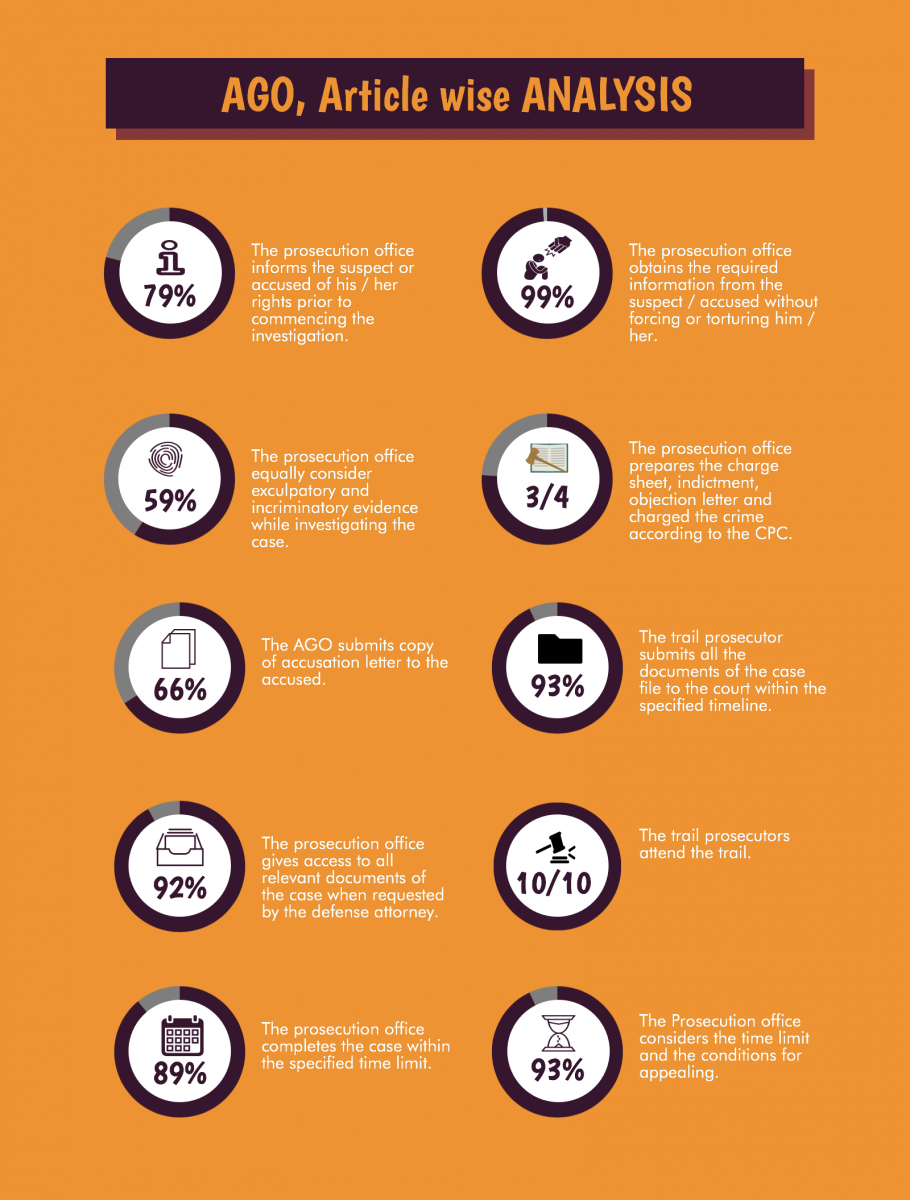
As a post-conflict country, Afghanistan continues to operate in a complex and fragile environment characterized by political instability, weak institutions and diminished public confidence.
While the Afghan justice sector has progressed over the last decade, continuing professional development (CPD) and institutional ownership is key to strengthening performance over the long-term. In 2013, IDLO launched the Justice Training Transition Program (JTTP) – one of the largest and most comprehensive criminal justice training programs implemented in Afghanistan. The program aims to build the capacity of Afghan criminal justice professionals in the Supreme Court, Office of the Attorney General (AGO), Criminal Investigation Department of the Ministry of Interiors (MOI), and the Ministry of Justice (MOJ).
JTTP is composed of two phases: the first, completed in March 2016, focused on building the immediate capacity of Afghan criminal justice professionals and the second, which is ongoing, seeks to reinforce the sustainability of continuing professional development in the country by transitioning the training responsibility to the Afghan government.
Now available, the results of JTTP’s first phase illustrate the impact the training and coaching had on key justice institutions, indicating promising outcomes for the long term.
 Since 2013, JTTP delivered around 400 legal training courses to over 9,000 participants across all 34 of Afghanistan’s provinces. In addition to training, JTTP provided over 23,000 hours of one-on-one coaching to around 2,300 legal professionals. IDLO especially encouraged and supported the participation of female justice professionals in JTTP courses. Though greatly underrepresented in the Afghan criminal justice sector overall, women made up 14 per cent of all JTTP graduates.
Since 2013, JTTP delivered around 400 legal training courses to over 9,000 participants across all 34 of Afghanistan’s provinces. In addition to training, JTTP provided over 23,000 hours of one-on-one coaching to around 2,300 legal professionals. IDLO especially encouraged and supported the participation of female justice professionals in JTTP courses. Though greatly underrepresented in the Afghan criminal justice sector overall, women made up 14 per cent of all JTTP graduates.
Using an innovative approach, IDLO identified 4 levels of evaluation to measure the program’s success in the first phase: how the participants reacted to the training, knowledge acquired, how behaviour has changed based on training and coaching received, and performance of the institutions where trainees are employed.
Across all institutions – the Supreme Court, Office of the Attorney General, Criminal Investigation Department of the MOI, and the Ministry of Justice - 71 per cent of legal cases were handled in line with the law. Many legal professionals said they were previously unaware of the importance of following procedures in criminal legal cases. They perceive that their participation in JTTP training and coaching significantly enhanced their knowledge, skills and competencies which resulted in performing their job better. In fact, 70 per cent of legal professionals trained reported that they learned about the application of laws through JTTP training and coaching sessions.
|
Attorney General's Office The majority of prosecutors in Attorney General’s Office believed they were not following most of the procedures in criminal cases before JTTP was implemented. Now, the AGO has a 75 per cent success rate of dealing with cases in line with the law, and 70 per cent of prosecutors surveyed said that JTTP had a positive impact on the institution’s performance. Following the different capacity development initiatives by JTTP, the Attorney General’s Office saw 89 per cent of cases completed on time across all provinces. |
|
Criminal Investigation Department of the Ministry of Interior 52 per cent of cases within the Criminal Investigation Department of the Ministry of Interior are handled according to the Afghanistan Criminal Procedure Code. While this is lower compared to other institutions under JTTP, many legal professionals involved believe that the performance of the department improved significantly since JTTP was implemented. For example, in 95 per cent of cases, a victim’s written and signed statement was part of the case files - a practice found in all provinces. Documentation of a witness’ statement was applied in 75 per cent of cases, 81 per cent of cases prepared detention reports, and 81 per cent of cases were prepared with sufficient evidence to move forward with court proceedings. |
|
Ministry of Justice The highest performing institution under JTTP was the Legal Aid Department of the Ministry of Justice, which saw 82 per cent of cases handled in line with the law. A legal aid lawyer was nominated when needed and within the required time limit in 80 per cent of cases. However, this didn’t happen across all provinces. A legal aid provider in Herat province reported that his client was kept in illegal custody for two weeks without contacting the legal aid department for support. Another provider informed that the courts and prosecution do not seek out legal aid services, rather it is the providers who approach institutions and prisons to see if legal aid services are needed. Despite this, the Department saw promising developments after JTTP, including meeting with clients ahead of trials, updating clients on the progress of their cases, preparing statements that meet legal requirements, and, in almost all cases, the legal aid provider participated in trial sessions. |
|
Supreme Court 79 per cent of judges shared that courts’ performance had improved considerably during the last few years due to JTTP training and coaching support. While this is a high success rate for the institution, there are continuing challenges. For example, in 57 per cent of cases, courts do not inform relevant parties of trial dates the required 5 days ahead of time. This leaves lawyers little time to prepare. Judges from Herat province cited lack of resources and workload of the judiciary as a reason. Despite this, there were significant improvements reported after the training: 88 per cent of trials were open to the public and courts ruled on 82 per cent of cases within the required time limit. |
For sustainability, JTTP was cautious to ensure its capacity development efforts was embraced by the partner institutions. Its strategy allowed for maximum authority to lie with the local stakeholders, in line with local capacity, context and levels of accountability, with the aim of inspiring public trust and confidence in Afghanistan’s justice institutions.
JTTP is funded by the United States Department of State.






